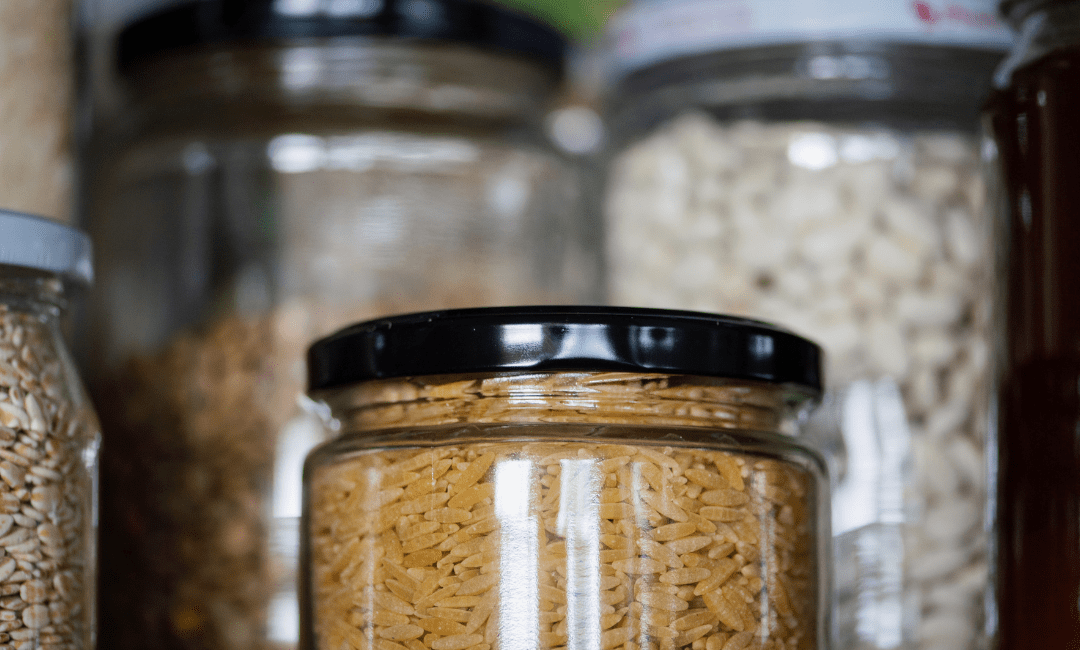Having a pantry in the house is the most convenient thing. You can store groceries and all your favorite foods. However, pests find their way into the pantry and are a pain to get rid of.
It is time for you to organize your kitchen, pantry, and baking supplies. If you find pantry pests in the flour, cake mixes, nuts, grains, or dried fruit, don’t panic – you are not the only one dealing with pests in their pantry.
Most Common Pantry Pests
Pantry pests are commonly known as stored product pests. These can include beetles, moths, pillbugs, earwigs, ants, cockroaches, and many others.
Even though there is a huge possibility that pests can enter the pantry through cracks and crevices, most pantry pests are a result of food processing plants. Infestations can also be caused due to storage facilities in which food is stored, along with unclean retail stores and delivery vehicles. Pest infestations can be quick, which is why we recommend dealing with them as soon as possible.
How to Prevent Pantry Pests
Before you use any product in your pantry, it is essential to check for pests. You never know if pests have chewed through that box of walnuts that you had stashed away in your pantry some months ago.
Below are ways you can prevent pantry pests from raiding your stash.
1. Get Proper Storage Boxes
One of the reasons why pests are attracted to pantries is because food is not stored correctly. If you store baking items and kitchen essentials in loose bags, pantry pests are likely to get attracted to them.
Instead, invest in airtight containers. Store popcorn, sugar, chips, and other pantry items in zip lock bags and then put those bags in containers so that pests cannot smell the scent of food. Remember to keep seasonal food like corn and dried foliage in proper containers, especially when you are not using them.
2. Make Use of Bay Leaves
One of the best ways to prevent pantry pests from destroying your food items and raiding your kitchen is by using bay leaves.
All you have to do is put bay leaves inside sealed containers that contain food items. You can put them in containers that hold rice and flour. This is because bay leaves have a strong scent that naturally repels pests.
3. Carefully Inspect Groceries Before Buying them
Many people love buying groceries. This means that they excitedly throw food items into their carriages without really inspecting any of the bags.
This is a huge mistake. You should always look to see that the grocery you are buying is not damaged in any way. Be careful that the packet is not open as open packets usually attract pests. You do not want to bring home pests that were already present at grocery stores.
4. Check the Expiration Date
To ensure that pantry pests do not invade the groceries in your kitchen, you must pay attention to the expiration date.
When ingredients expire, they become prone to pantry pests. This is why before purchasing an item, you should always make sure to carefully look at the expiration date. If you notice that the food is well past the date, let the administration know.
5. Make Sure that Your Kitchen is Always Clean
A dirty kitchen will always attract pests. It does not matter how clean your pantry is or how well-maintained you keep your fridge.
If your kitchen counters are dirty or food is left out overnight or there are crumbs on your dining table, you cannot prevent pests from entering your home and destroying the food in your pantry. The key is to clean up spills and messes instantly.
6. Seal Up Any Cracks
Over time, your house will require maintenance work. As a house gets older and more repair work starts to show up, you will find cracks and crevices in your home.
Even though this is natural, you need to get them repaired. Sometimes, repair bills can be hefty so we would advise you to at least immediately seal the cracks at home so that insects do not find an opening. Remember, pests are extremely clever and can get through the smallest space.
Signs You Have Pantry Pests
- Tiny beetles in dried food bags
- Beetles crawling inside cupboards or on counters
- Beetles going in and out of windows
- Indian meal moths swarming around the kitchen
- Caterpillars crawling on the kitchen walls
- Webbing and spiders inside food packets that have expired
In case you notice pantry pests or have doubts about an infestation, it is best to get a professional pest control company to visit your home. Take measures before the infestation spreads to other rooms of your house.
